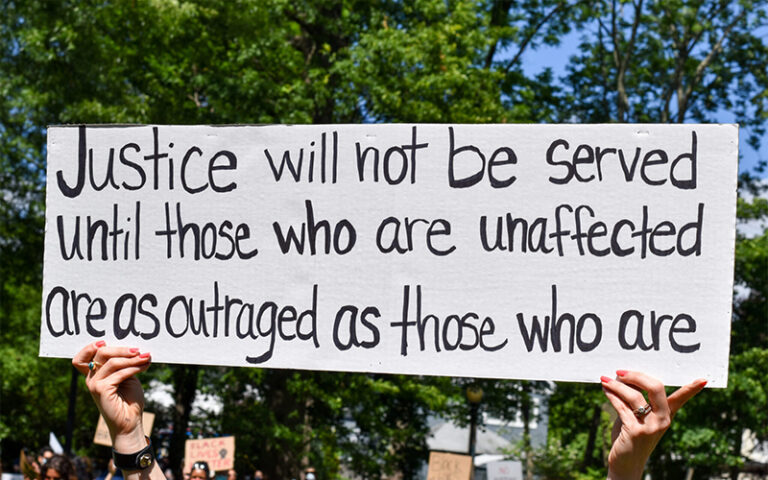In recent weeks, I planned to write a blog about problems of practice that affect instructional coaching and support in schools. However, due to the recent mass shooting in Buffalo, New York, and the resulting news coverage, I decided to write about something even more pressing.
The mass shooting took the lives of 10 people, most elderly and Black, and media coverage of the event was nonstop. Two main ideas stood out to me about the narrative being presented to the public by the media: 1.) that this hate-filled act was due to mental illness, and 2.) that a white male charged with a crime at 18 can be portrayed as a teen, yet a Black male of the same age is considered a man. Media present the story they want us to see and hear. Words have power — more than we believe or even imagine. The words we choose to use have a lasting impact on listeners. That is obvious by the manifesto left by the young man who killed all those people in Buffalo.
The event itself saddened and angered me, but the words used by various media outlets dumbfounded me. In almost every interview or report immediately following the heinous act, the reporter mentioned mental illness. It is my personal belief that hate is not a result of mental illness, but a choice. I do, however, believe that people experiencing mental illness can be more susceptible to manipulation. Were it not for his social media post and live-streaming, no one would have even known he felt the way he did. This individual made a premeditated, conscious decision to take the lives of those he felt threatened his way of life and were on a path to eliminate the white race.
The coverage of this event shows how deep systemic/structural racism goes. Black men like me do not have our missteps mitigated by attributing them to mental illness. We are not often afforded the privilege of being arrested without injury and taken into custody with the rights police officers swear to protect.
In addition to the references to mental illness, multiple media sources continue to portray the shooter as a teen. Black males are not given the privilege, courtesy, or excuse when being charged with or accused of crimes. In fact, Black teenagers as young as 14 years old have been labeled young men and charged as adults. Our country clearly has a double standard when it comes to the representation and experiences of Black and white people, and America does not appear to want to change it.
My challenge to all my white counterparts out there is to immediately stamp out racism where it stands.
- Do not allow individuals that spread hate and hate-filled ideologies to hide behind freedom of speech or run for political office.
- Do not provide racists the platform to spread hate and cause harm. They may not directly commit the crime, but those they speak to understand their message and are called to action.
- Look at yourself and your own personal bias, and ask yourself if you are contributing to the problem.
- If you have voted for someone despite their views on race, you are part of the problem.
- If you have watched a police officer pull over or harass an individual of color and have not recorded and reported, you are contributing to the problem.
- If you do not have something you regularly do in your daily life that fights against oppressive practices, behaviors, and laws, you are contributing to the problem.
Ignorance is not an excuse or defense — we are beyond that. If you do not know what to do or how to help, ask yourself, “What would I do if it were me or my family member?” and do that. In order to do better as a country, we must end racism. If we cannot do that, racism will be the downfall of what we believe to be the greatest nation on earth.
Check out CT3 Education programs such as No-Nonsense Nurturer, Real Time Teacher Coaching, and Real Time Leadership Coaching to find out more about Professional Development for Teachers and Leaders, classroom management strategies, and building relationships with students and their families, and properly addressing important issues in the classroom and school.
Category: Anti-Racism


